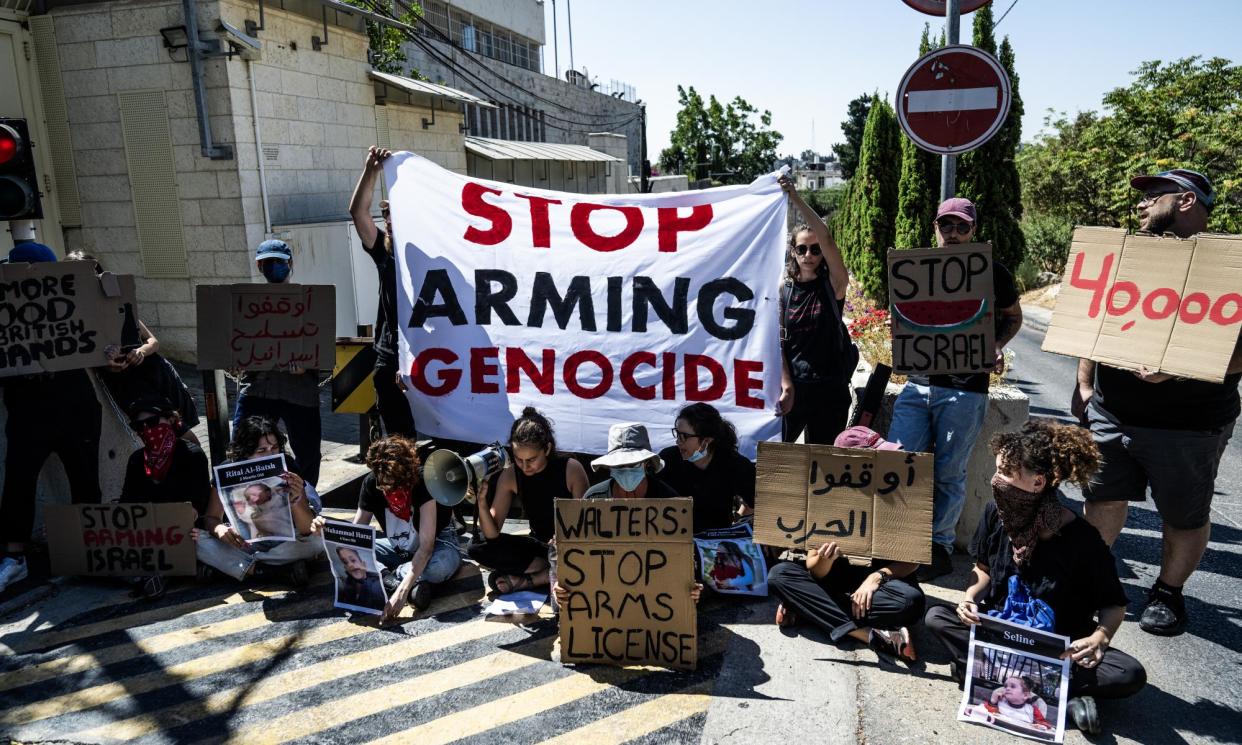Foreign Office official quits over UK refusal to ban arms exports to Israel

A Foreign Office official has resigned over the UK’s refusal to ban arms exports to Israel because of alleged breaches of international law.
Mark Smith, a counter-terrorism official based at the British embassy in Dublin, said he had resigned after making numerous internal complaints, including through an official whistleblowing mechanism, but receiving nothing but pro-forma responses.
Smith said he had previously worked in Middle East arms export licensing assessment for the government and “each day” colleagues were witnessing “clear and unquestionable examples” of war crimes and breaches of international humanitarian law by Israel in Gaza.
“Senior members of the Israeli government and military have expressed open genocidal intent, Israeli soldiers take videos deliberately burning, destroying and looting civilian property,” he wrote. “Over half of Gaza’s homes and over 80% of Gaza’s commercial properties have been damaged or destroyed.
“Whole streets and universities have been demolished, humanitarian aid is being blocked and civilians are regularly left with no safe quarter to flee to. Red Crescent ambulances have been attacked, schools and hospitals are regularly targeted. These are war crimes.”
He said there was “no justification for the UK’s continued arms sales to Israel, yet somehow it continues”.
The Foreign, Commonwealth and Development Office (FCDO) said it could not comment on an individual case, but that the government was committed to upholding international law.
The Labour government has pledged to review the policy of arms sales to Israel, but has so far not come to any decision.
The foreign secretary, David Lammy, has said it may continue to allow the sale of defensive weapons but cut off the flow of offensive weapons being used in Gaza. He said it was a complex judicial process.
Smith said he was resigning with sadness after a long career in the Foreign Office, and that the only response he received to his complaints was to the effect of “Thank you, we have noted your concerns”.
He said it was deeply troubling as a senior officer to be disregarded in this way, and that many other senior colleagues had raised concerns.
The resignation email was sent to a wide set of distribution lists including hundreds of government officials, embassy staff and special advisers to Foreign Office ministers.
According to the email, Smith’s role was “second secretary counter terrorism” – understood to be a relatively junior rank, but one in which he described himself as “a subject-matter expert in the domain of arms sales policy” after “a long career in the diplomatic service”.
He wrote: “Ministers claim that the UK has one of the most ‘robust and transparent’ arms export licensing regimes in the world, however this is the opposite of the truth. As a fully cleared officer raising serious concerns of illegality in this department, to be disregarded in this way is deeply troubling. It is my duty as a public servant to raise this.”
Francesca Albanese, the UN special rapporteur on the Palestinian Territories, praised Smith’s move as brave, and said she hoped many more diplomats would join him.
The UK is facing a judicial review over its arms sales policy that will focus on whether the Foreign Office has acted perversely in failing to ban arms sales.
Israel insists it is acting in self-defence and does all that it can to distinguish between civilian and Hamas targets in Gaza.
The war began when Hamas-led militants stormed across the border on 7 October last year, killing about 1,200 people, mostly civilians, and abducting 250 to Gaza. Israel claims to have killed more than 17,000 Hamas militants, without providing evidence. Gaza’s health ministry has said at least 40,074 Palestinians have been killed, but does not differentiate combatants from civilians.


